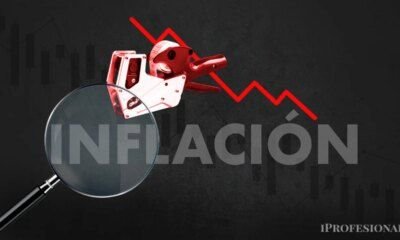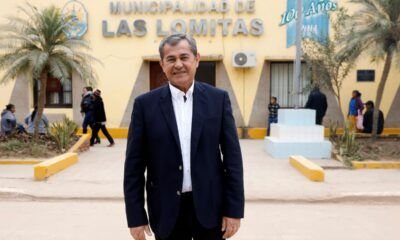INTERNACIONAL
Ecuador: el narcotráfico y el crimen organizado se meten en la política y financian campañas electorales
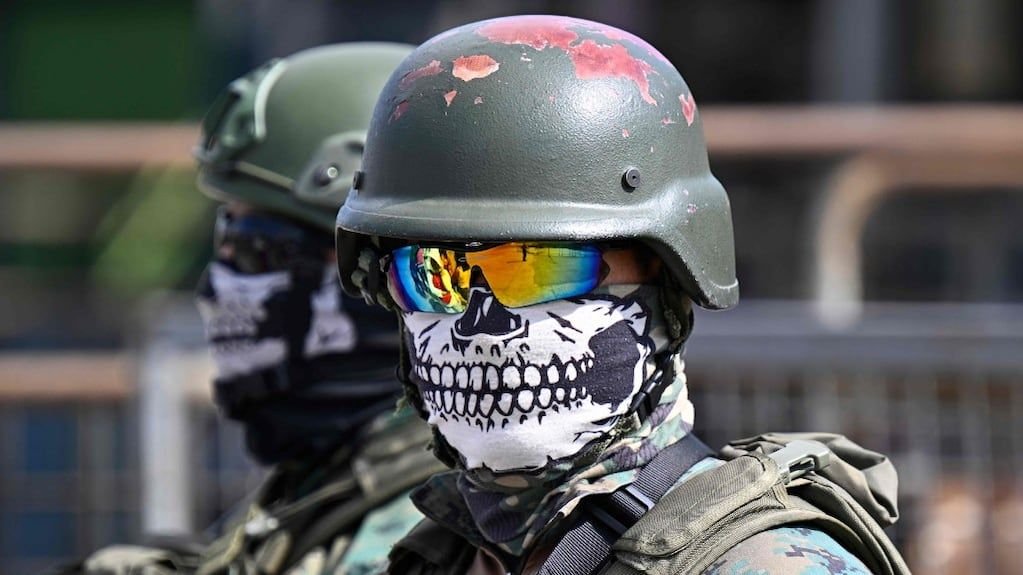
Hay solo dos cosas que unen hoy a los ecuatorianos: la pasión por la Tri, la selección de fútbol que está a un paso de clasificar al Mundial 2026, y el creciente temor por la inseguridad.
En Ecuador se produce hoy una muerte violenta por hora. La penetración del narcotráfico y el crimen organizado cambió la vida de los casi 18 millones de ecuatorianos, en especial en el violento corredor costero y el puerto de Guayaquil y sus alrededores. Las matanzas, tiroteos, asesinatos, extorsiones, motines carcelarios, secuestros y amenazas se convirtieron en una rutina desoladora. El país tiene hoy la tasa de crímenes por 100.000 habitantes más elevada de la región: 38,8, según la organización estadounidense Insight Crime. En algunas zonas supera los 100.
Leé también: Tensión en Ecuador tras la reelección de Noboa: el correísmo denuncia “listas” para perseguir a opositores
En comparación, la Argentina tiene un índice de 3,8. En su peor momento, en 2022, Rosario tocó más de 22, aunque las cifras oficiales indican una baja sustancial desde entonces hasta situarse en poco más de 6.
Pero hay una línea roja que el narco y las bandas criminales cruzaron hace tiempo en Ecuador: la irrupción en la política y en especial en el financiamiento de las campañas electorales, como la que acaba de concluir con la reelección del presidente centroderechista Daniel Noboa en el balotaje del domingo 13 de abril.
Hoy, los grupos delincuenciales no solo dominan un vasto territorio, sino también gozan del control de municipios en “zonas calientes” y hay fuertes sospechas de la penetración en la política provincial y nacional. Los nombres de las bandas son conocidos: Los Choneros, Los Lobos, Los Tiguerones… Luchan entre sí por el control del territorio y reciben el apoyo de carteles mexicanos, colombianos y hasta de la mafia calabresa (N´drangheta) y de los Balcanes.
“Hoy tienes todos los elementos presentes en la campaña (electoral reciente) ante la inacción del Estado. Avanza el financiamiento narco. El país vive una situación de narco política activa que la vamos a ver más en 2027″, en las próximas elecciones de medio término, dijo el analista Mauricio Alarcón, director ejecutivo de Fundación Ciudadanía y Desarrollo y contacto de Transparencia Internacional en Ecuador, en una charla de la que participó TN en Quito.
Cómo fue creciendo el financiamiento del crimen organizado en las campañas electorales de Ecuador
Todos en Ecuador coinciden en cuándo “se jodió” el país, pero no en el “por qué”. En el imaginario colectivo, la línea temporal se sitúa en la salida del expresidente Rafael Correa, hoy exiliado en Bruselas tras ser condenado a ocho años de cárcel por corrupción, en 2017, después de una década en el poder.
El correísmo, el gran derrotado de las recientes elecciones, responsabiliza a los gobiernos “liberales” que le siguieron. Pero desde la derecha afirman que simplemente con la salida de Correa cayeron los “acuerdos” con el crimen organizado. Incluso, algunos referentes y analistas, en distintas conversaciones “en off” con TN, sostuvieron que la Revolución Ciudadana de Correa dio la orden de provocar revueltas en las cárceles y expandir la violencia para hostigar a las administraciones de Lenin Moreno (2017-21), Guillermo Lasso (2021-23) y Daniel Noboa, que acaba de ser reelecto para un nuevo período hasta 2029.
Soldados revisan el permiso de un arma hallada en un vehículo durante un control de seguridad del ejército en Guayaquil (Foto de archivo: AP/Martín Mejía)
Noboa le declaró la guerra al narco y el crimen organizado, sacó el ejército a las calles y proclamó el estado de conmoción y excepción en gran parte del territorio nacional. Incluso, antes de ser reelecto con más del 55% de los votos ante su rival correísta, Luisa González, le pidió ayuda a Donald Trump y contactó al polémico empresario y exmilitar estadounidense Erik Prince, fundador de la empresa de seguridad privada Blackwater, ahora llamada Academi, para sumarlo al plan de seguridad. La empresa tuvo varias denuncias de violaciones a los derechos humanos en Irak.
Pero el fenómeno de la narcopolítica comenzó a gestarse mucho antes de la salida de Correa del poder, hace más de una década. Para Alarcón, el narcotráfico y el crimen organizado vienen penetrando las campañas electorales desde 2013, cuando aún gobernaba la izquierda.
Leé también: Andrónico Rodríguez, el dirigente cocalero aliado de Evo Morales que se perfila como candidato presidencial
“Ese año detectamos la presencia del narcotráfico y el crimen organizado financiando cierto tipo de campañas. Eran aportes pequeños que generaron un vínculo. Pero nos contestaron que era un fenómeno leve y estaba bajo control”, contó.
En las elecciones secundarias de dos años después, esa participación “fue mucho más importante para controlar gobiernos locales. Hemos detectado aportes de redes de corrupción”, dijo Alarcón. Entonces la respuesta de las autoridades fue similar.
En los comicios generales de 2017, prosiguió el representante de Transparencia Internacional en el país, “ya detectamos no solo financiamiento, sino presencia en listas. Hubo abogados de narcos como candidatos y nuevos caciques locales (involucrados en el crimen organizado) encabezando listas”, indicó.
En 2019, en las elecciones seccionales, siempre según Alarcón, la situación se agravó. “A nivel local, las organizaciones narcos y del crimen organizado ya tenían estructura propia en poderes locales”, detalló. La respuesta oficial no cambió.
Militares patrullan una zona de Guayaquil (Foto: AFP)
La penetración de estos grupos delincuenciales siguió avanzando dos años después. “En 2021, en las presidenciales, se denunció el financiamiento anómalo de la campaña de Andrés Araúz (candidato correísta a la presidencia). Identificamos a ciertos elementos activos en redes de narcos que fueron electos”, dijo.
Según señaló, poco después hubo dos candidatos procesados por la justicia por supuestos vínculos con bandas criminales.
Pero en la práctica poco cambió. En las elecciones seccionales de 2023, afirmó Alarcón, hubo “candidatos narcos haciendo transmisiones en Facebook Live”. En las imágenes, según precisó, se los veía “entregando fajos de billetes a la gente. Varios alcaldes llegaron (al poder municipal) gracias a este modus operandi”, señaló.
“Hoy tienes todos los elementos presentes en la campaña (electoral reciente) ante la inacción del Estado. Avanza el financiamiento narco. El país vive una situación de narco política activa que la vamos a ver más en 2027″, en las próximas elecciones de medio tiempo, aseguró.
Por qué avanza el narco en Ecuador
Para Alarcón, el narcotráfico y el crimen organizado se nutren del abandono del Estado en las zonas más postergadas y “calientes” del país.
“En algunos lugares le dan licencia total ante la ausencia del Estado. La gente le agradece al narco las obras públicas en zonas de Esmeralda, en la frontera con Colombia, en Sucumbíos y Orellana. Están muy contentos. El narco genera una fuente de ingresos. Mucha gente dice: ´es eso o nos morimos de hambre´”, comentó.
Ese escenario genera una dependencia total entre la ciudadanía y el crimen organizado en zonas violentas del país. “Hay gente que paga contenta la vacuna (impuesto obligatorio) porque el narco les da seguridad”, señaló.
Según el experto, Ecuador vive hoy “una ficción de guerra”. Noboa asegura que en 2024 bajó en forma significativa el índice de asesinatos. Pero “el primer trimestre de 2025 fue el período más violento desde la recuperación democrática. Se registra una muerte violenta por hora. Estamos superando a México y Honduras. Antes (durante el correísmo) convivíamos pacíficamente con el narco y eso nos daba una falsa sensación de seguridad”, concluyó Alarcón.
Ecuador, Daniel Noboa
INTERNACIONAL
Rusia se apodera de un yacimiento clave de litio desafiando el acuerdo de minerales entre EE. UU. y Ucrania
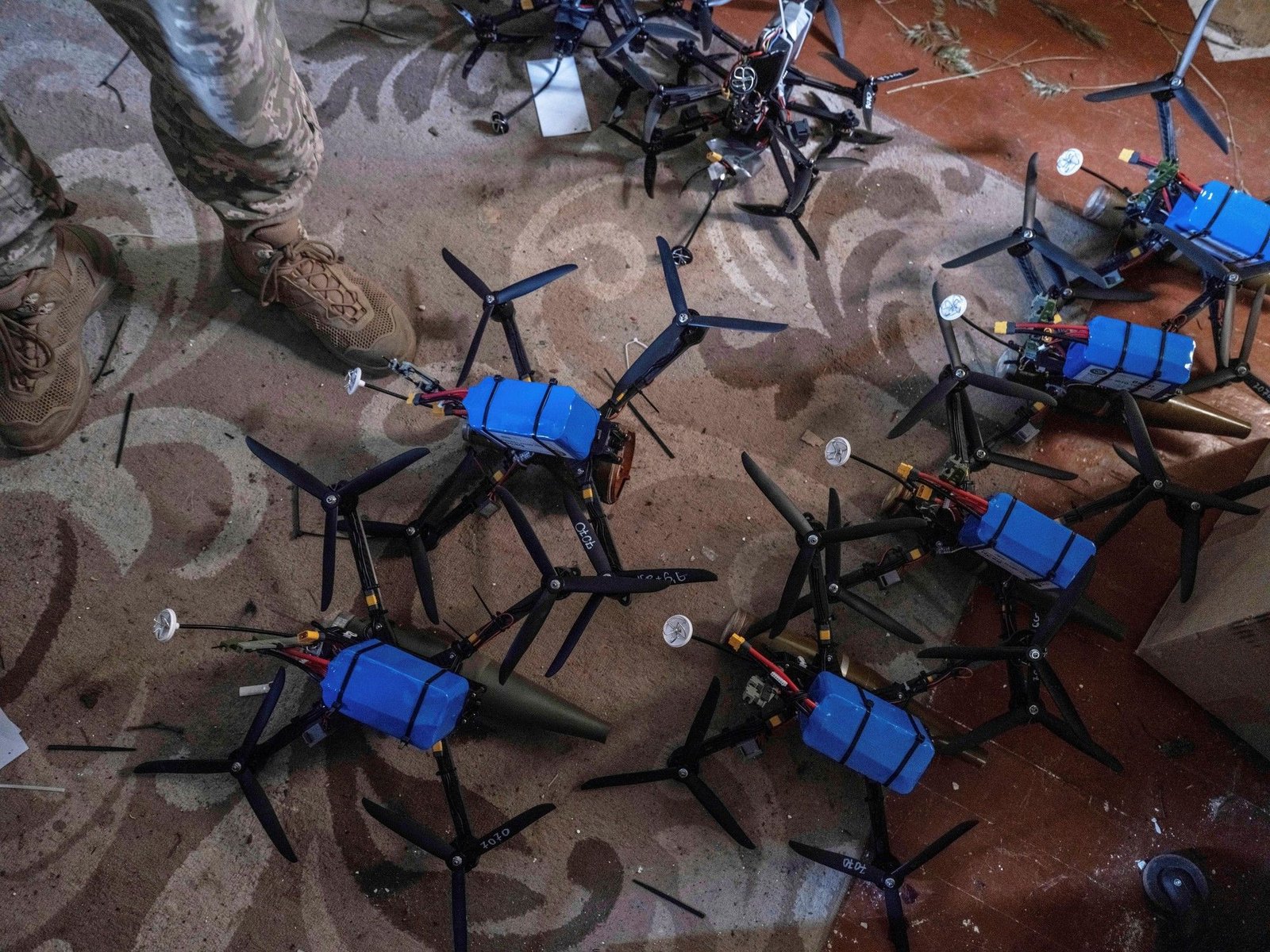
Negociaciones
Reservas
INTERNACIONAL
Oversight chair demands Jean-Pierre, other former WH staff testify on alleged Biden mental decline coverup
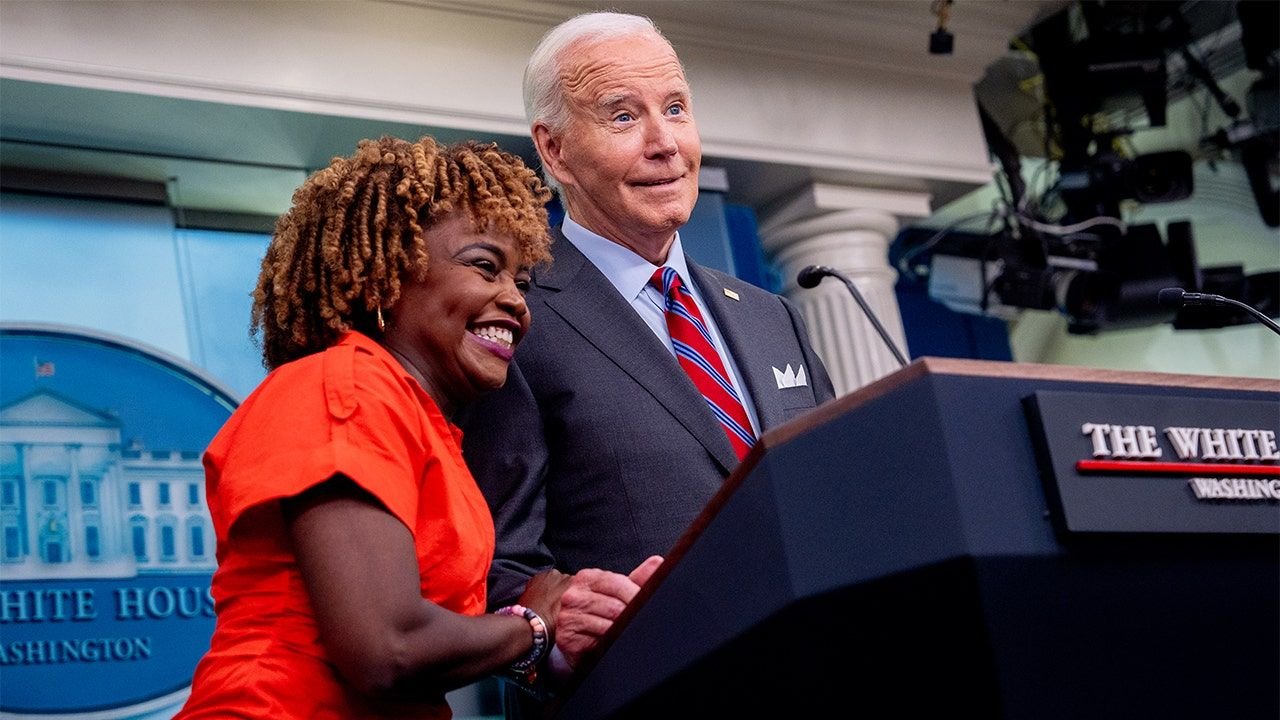
NEWYou can now listen to Fox News articles!
An influential House committee is demanding that former White House press secretary Karine Jean-Pierre and three other former top White House staffers appear before Congress to testify about the alleged cover-up of former President Joe Biden’s mental decline.
Committee on Oversight and Government Reform Chairman James Comer, R-Ky., has been on the hunt for who was making decisions in Biden’s inner circle during the president’s apparent mental decline.
On Friday, he sent letters to Karine-Pierre and former White House chief of staff Jeff Zients, former senior deputy press secretary Andrew Bates and former special assistant to the president Ian Sams, demanding they present themselves for transcribed interviews with the oversight committee.
The letters are part of the committee’s ongoing investigation into the alleged attempted cover-up of Biden’s decline and the potentially unauthorized issuance of sweeping pardons and other executive actions by senior White House officials usurping Biden’s presidential authority.
JILL BIDEN’S ‘WORK HUSBAND’ REFUSES TO TESTIFY ON JOE’S MENTAL DECLINE
Former President Joe Biden, accompanied by former White House press secretary Karine Jean-Pierre, jokes about taking so many questions during a news conference in the Brady Press Briefing Room at the White House Oct., 4, 2024 in Washington, D.C. (Andrew Harnik/Getty Images)
In his letters, Comer says the committee believes that the four top Biden staffers have «critical» information on «who made key decisions and exercised the powers of the executive branch during the previous administration, possibly without former President Biden’s consent.»
The letter to Jean-Pierre stated that as White House press secretary and a top Biden confidante, «you were not only near the president daily, but you were ‘alongside the ranks of the president’s top confidantes.’»
«Your assertion, on multiple occasions, that President Biden’s decline was attributable to such tactics as ‘cheap fakes’ or ‘misinformation’ cannot go without investigation,» wrote Comer.
He said that «if White House staff carried out a strategy lasting months or even years to hide the chief executive’s condition — or to perform his duties — Congress may need to consider a legislative response.»
REP COMER ON A HUNT FOR BIDEN DECISION-MAKER IN THE ADMIN’S ‘INNER CIRCLE’
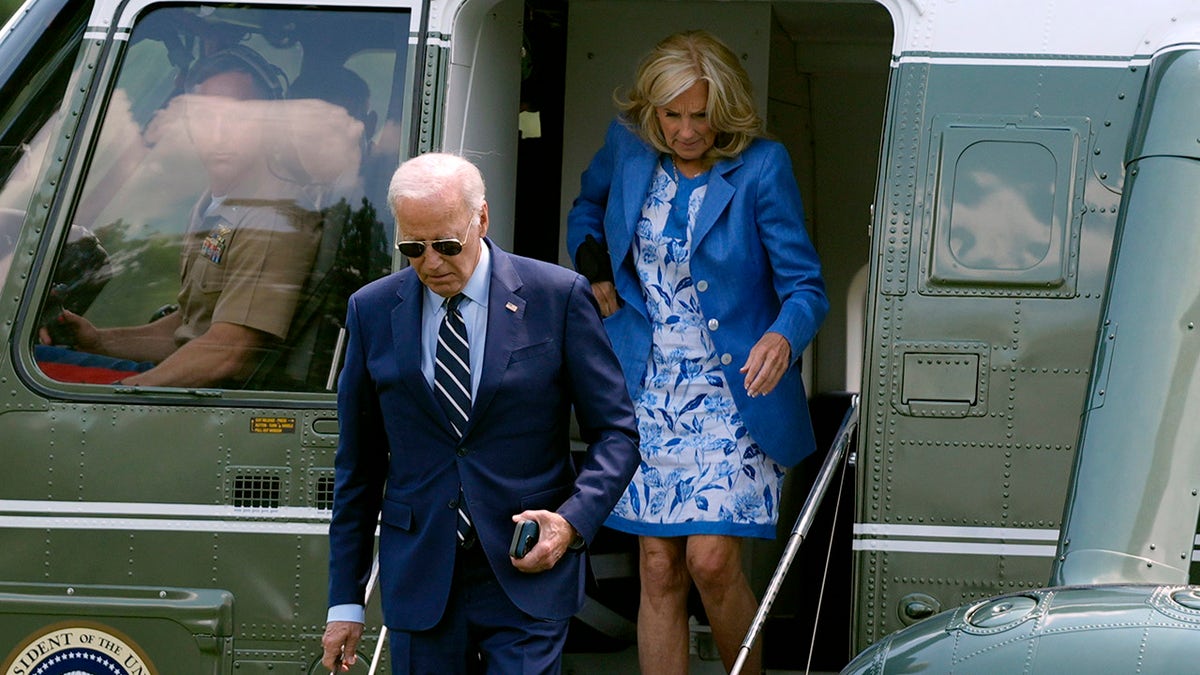
Former President Joe Biden, left, and first lady Jill Biden arrive on Marine One on the South Lawn of the White House Aug. 5, 2024, in Washington. (AP Photo/Evan Vucci)
Comer set interview dates in late August and early September and gave the four senior officials until July 4 to confirm they would comply with the demands voluntarily or if they will «require a subpoena to compel your attendance for a deposition.»
Jean-Pierre, Zients, Bates and Sams are the latest former Biden senior officials to receive a congressional summons from Comer as part of the Oversight Committee’s investigation into the alleged cover-up. The chairman also issued subpoenas to Dr. Kevin O’Connor, Biden’s physician, and Anthony Bernal, former assistant to the president and senior advisor to the first lady, after they refused to appear before the committee voluntarily.
In a statement to Fox News Digital, Comer said that «as part of our aggressive investigation into the cover-up of his cognitive decline and potentially unauthorized executive actions, we must hear from those who aided and abetted this farce.»
EXCLUSIVE: COMER HAILS DOJ’S BIDEN PROBE AS HOUSE INVESTIGATION HEATS UP
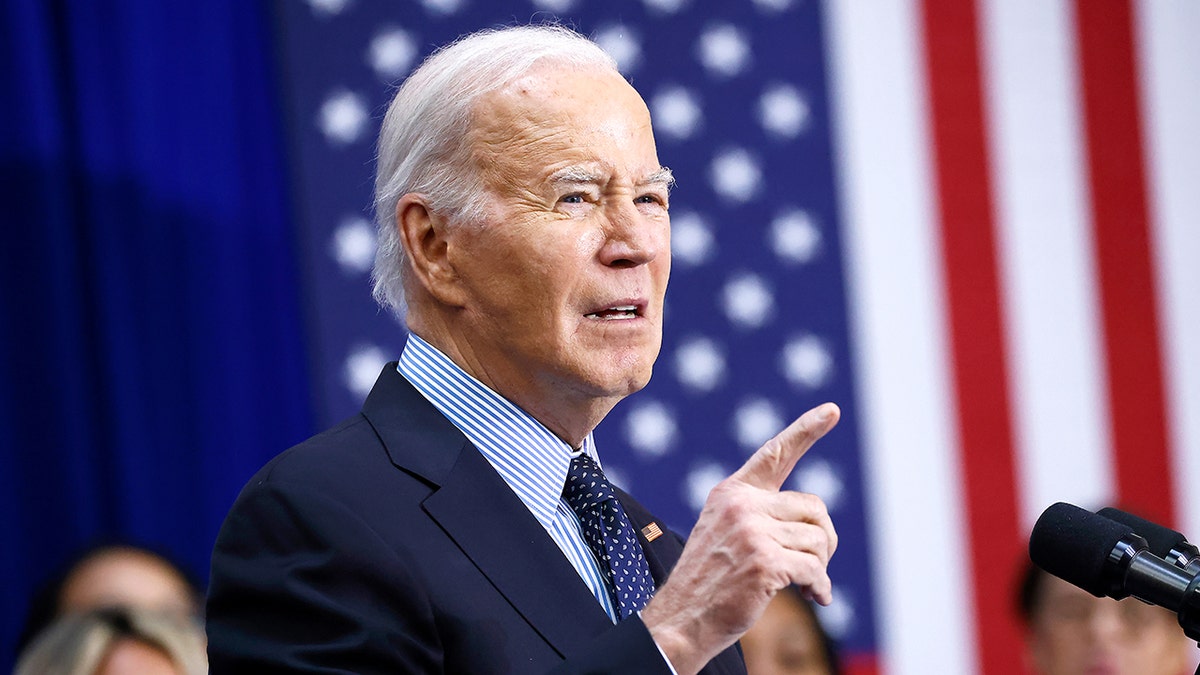
A new book describes President Joe Biden’s cabinet meetings as «scripted» and «uncomfortable.» (Paul Morigi/Getty Images for Care Can’t Wait Action)
CLICK HERE TO GET THE FOX NEWS APP
«President Biden’s inner circle repeatedly told the American people that he was ‘sharp as ever,’ dismissing any commentary about his obvious mental decline as ‘gratuitous,’» he said. «They fed these false talking points to progressive allies and the media, who helped perpetuate that President Biden was fit to serve.»
Jean-Pierre, Zients, Bates and Sams did not reply to Fox News Digital’s request for comment before publication.
INTERNACIONAL
New WHO report fails to rule out COVID-19 lab leak origin as China continues to impede investigation
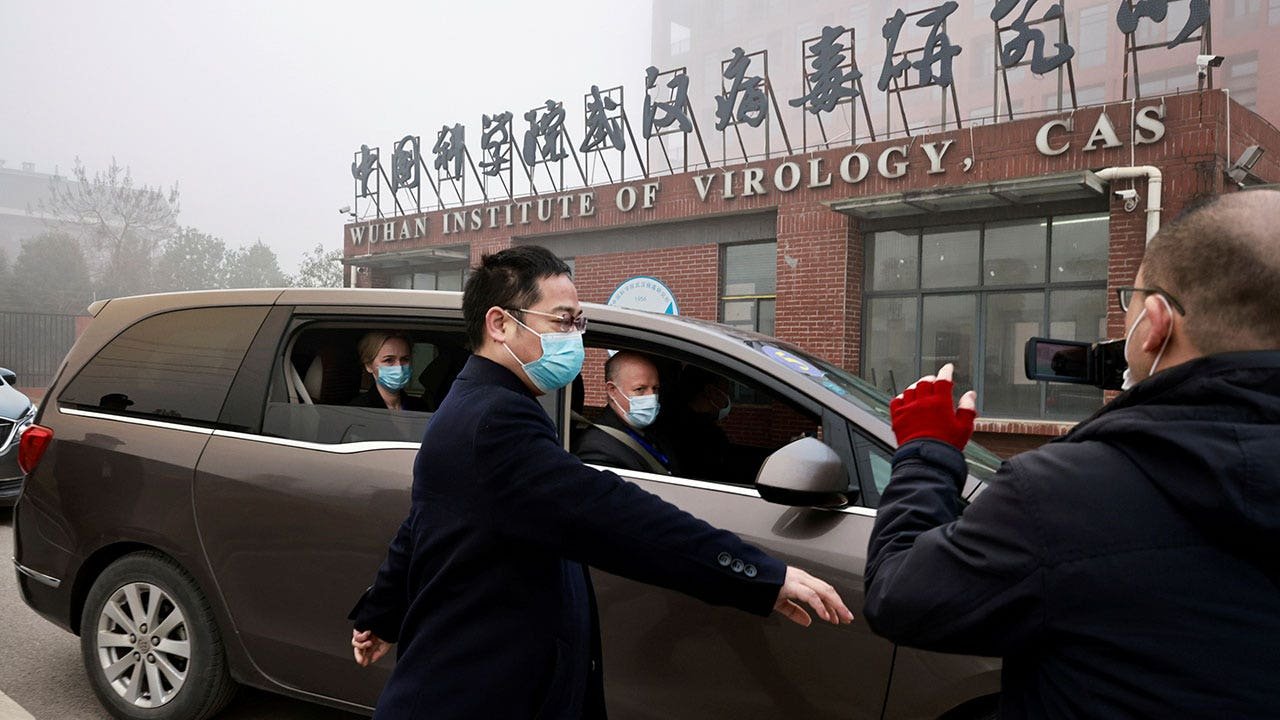
NEWYou can now listen to Fox News articles!
A World Health Organization (WHO) scientific advisory group on Friday released a report on the origins of COVID-19, concluding that available evidence suggests the deadly pandemic was caused by «zoonotic spillover,» either directly from bats or through an intermediate host.
The report from the Scientific Advisory Group for the Origins of Novel Pathogens (SAGO), which claims to be a panel of 27 independent, international, multidisciplinary experts, said that much of the information needed to fully evaluate all hypotheses has not been provided.
However, still citing a believed cause, WHO Director-General Tedros Adhanom Ghebreyesus said that «all hypotheses must remain on the table, including zoonotic spillover and lab leak.»
Members of the World Health Organization team tasked with investigating the origins of the coronavirus disease arrive at the Wuhan Institute of Virology in Wuhan, China. (Reuters/Thomas Peter. File)
FBI EXAMINING COVID-19 ORIGIN ‘COVER-UP’ AMID NEW STRAIN EMERGENCE: BONGINO
As the Wall Street Journal previously reported, the WHO’s COVID-19 origin findings come amid a pattern of suspicious activity.
The WHO traveled to China in early 2021 with British zoologist Dr. Peter Daszak, who was disbarred last year from doing work for the U.S. Department of Health and Human Services and is accused of using American taxpayer dollars to fund gain-of-function research at the bat lab in Wuhan, China.
Once at the Wuhan lab, Daszak and others were allegedly blocked from doing any of the research necessary to investigate.

Security personnel stand outside the Wuhan Institute of Virology during the visit by the World Health Organization (WHO) team tasked with investigating the origins of the coronavirus disease (COVID-19), in Wuhan, Hubei province, China. (Reuters, File)
DR. MARC SIEGEL: TRUMP IS RIGHT TO BLOCK ‘DANGEROUS’ GAIN-OF-FUNCTION RESEARCH
As noted by the White House when highlighting a report from the Select Subcommittee on the Coronavirus Pandemic, «The Proximal Origin of SARS-CoV-2» publication — which was used repeatedly by public health officials and the media to discredit the lab leak theory — was prompted by Dr. [Anthony] Fauci to push the preferred narrative that COVID-19 originated in nature.
The WHO said it had requested that China share hundreds of genetic sequences from individuals with COVID-19 early in the pandemic, more detailed information about the animals sold at markets in Wuhan, and information on work done and biosafety conditions at laboratories in Wuhan.
To date, China has not shared this information either with SAGO or the WHO.
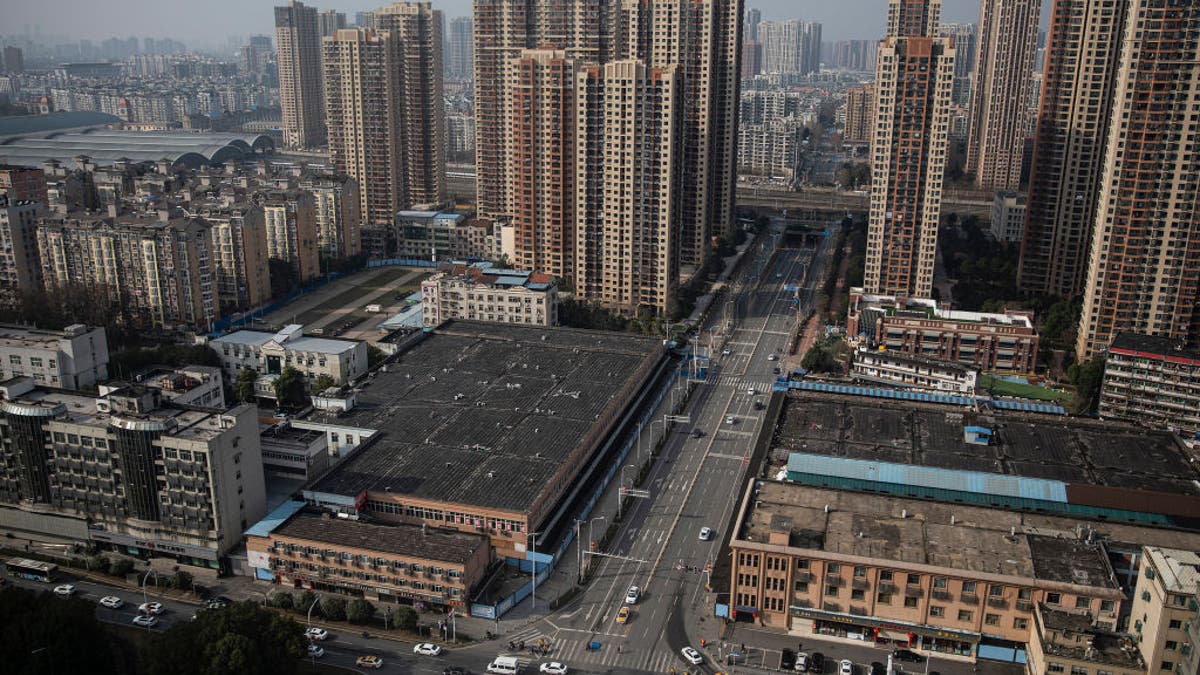
A view of the Huanan seafood market, Feb. 9, 2021, in Wuhan, Hubei Province, China. (Getty Images)
TRUMP BANS FEDERAL FUNDING FOR ‘DANGEROUS’ GAIN-OF-FUNCTION RESEARCH
«I thank each of the 27 members of SAGO for dedicating their time and expertise to this very important scientific undertaking over more than three years,» Ghebreyesus wrote in a statement. «… We continue to appeal to China and any other country that has information about the origins of COVID-19 to share that information openly, in the interests of protecting the world from future pandemics.»
SAGO published its initial findings and recommendations in a report on June 9, 2022. The most recent report updates the evaluation based on peer-reviewed papers and reviews, as well as available unpublished information and field studies, interviews and other reports, including audit findings, government reports and intelligence reports.
Those part of SAGO convened in various formats 52 times, conducted briefings with researchers, academics, journalists and others, according to the WHO.
READ THE FULL REPORT HERE:
«As the report says, this is not solely a scientific endeavor, it is a moral and ethical imperative,» Marietjie Venter, chair of the group, wrote in a statement. «Understanding the origins of SARS-CoV-2 and how it sparked a pandemic is needed to help prevent future pandemics, save lives and livelihoods, and reduce global suffering.»
CLICK HERE TO GET THE FOX NEWS APP
«The work to understand the origins of SARS-CoV-2 remains unfinished,» the WHO wrote in a statement. «WHO welcomes any further evidence on the origins of COVID-19, and SAGO remains committed to reviewing any new information should it become available.»
-
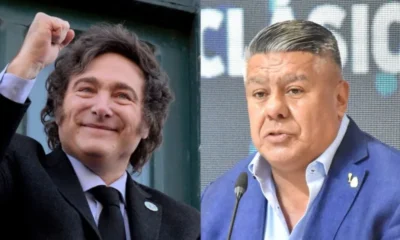
 POLITICA2 días ago
POLITICA2 días agoJavier Milei apuntó duro al Chiqui Tapia por la eliminación de River y Boca: “Le hace mal al fútbol”
-
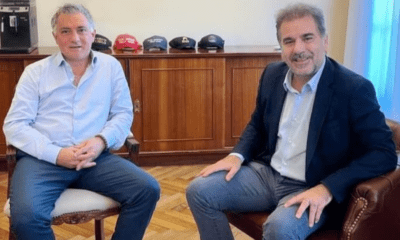
 POLITICA21 horas ago
POLITICA21 horas agoDesconfianza de los intendentes del PRO sobre el avance de las negociaciones con LLA: “Hasta ahora nadie acercó una propuesta”
-
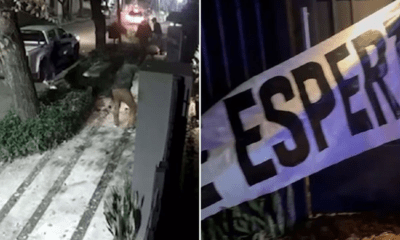
 POLITICA2 días ago
POLITICA2 días agoDetuvieron a una funcionaria del Ministerio de la Mujer bonaerense por el ataque a la casa de José Luis Espert


